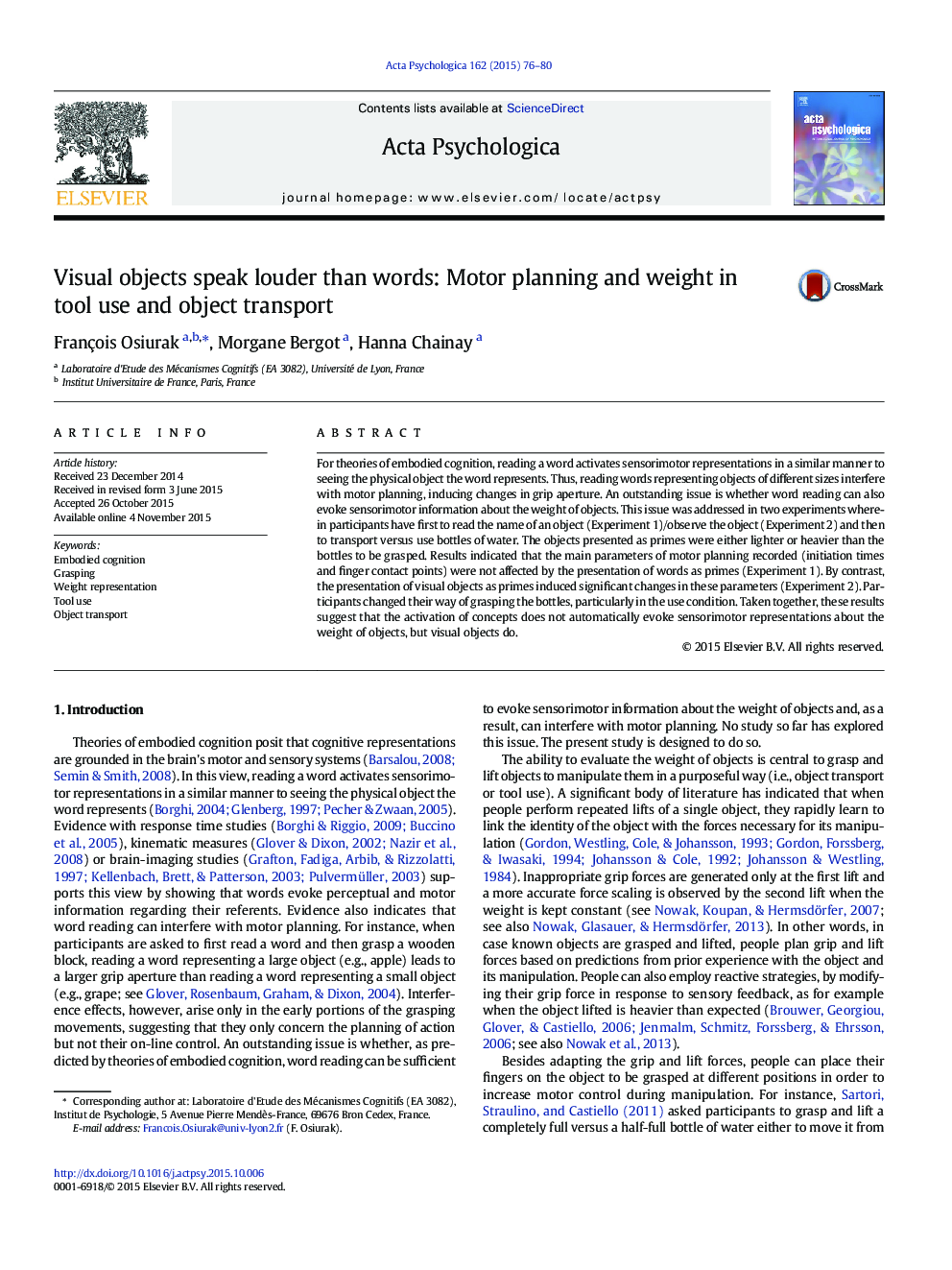| Article ID | Journal | Published Year | Pages | File Type |
|---|---|---|---|---|
| 919648 | Acta Psychologica | 2015 | 5 Pages |
•Does reading a word activate sensorimotor representations of the weight of objects?•Experiment 1 shows that motor planning is not affected by words as primes.•Experiment 2 shows that motor planning is altered by visual objects as primes.•In sum, only visual objects evoke sensorimotor representations about the weight.
For theories of embodied cognition, reading a word activates sensorimotor representations in a similar manner to seeing the physical object the word represents. Thus, reading words representing objects of different sizes interfere with motor planning, inducing changes in grip aperture. An outstanding issue is whether word reading can also evoke sensorimotor information about the weight of objects. This issue was addressed in two experiments wherein participants have first to read the name of an object (Experiment 1)/observe the object (Experiment 2) and then to transport versus use bottles of water. The objects presented as primes were either lighter or heavier than the bottles to be grasped. Results indicated that the main parameters of motor planning recorded (initiation times and finger contact points) were not affected by the presentation of words as primes (Experiment 1). By contrast, the presentation of visual objects as primes induced significant changes in these parameters (Experiment 2). Participants changed their way of grasping the bottles, particularly in the use condition. Taken together, these results suggest that the activation of concepts does not automatically evoke sensorimotor representations about the weight of objects, but visual objects do.
